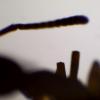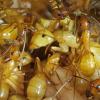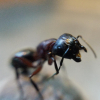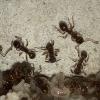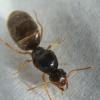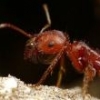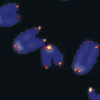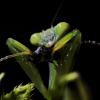- Formiculture.com
- Forums
- Gallery
- Members
- Member Map
- Chat

Hibernation. Essential or optional?
Started By
AntaholicAnonymous
, Sep 5 2019 6:05 AM
hibernation cold winter sleep winter pause warm ants queen
22 replies to this topic
#1
 Offline
-
Posted September 5 2019 - 6:05 AM
Offline
-
Posted September 5 2019 - 6:05 AM
I started this topic here cause I wanna hear from yall what you think about hibernation and not properly cooling them during winter if not possible due to the setup.
Maybe even share a couple facts or mistakes you made so we all can learn from them.
Maybe even share a couple facts or mistakes you made so we all can learn from them.
#2
 Offline
-
Posted September 5 2019 - 6:11 AM
Offline
-
Posted September 5 2019 - 6:11 AM
So I gonna start off saying that I love natural setups and so did my lasius colony I had for 3 years (released them they didn't die) .
The issue is tho that I can't hibernate them properly.
They went into hibernation without proper cooling and did well overall.
Now with my new manica queen I'm concerned that it might be harmful but I don't know if the cold is even that crucial or the slow metabolism alone is the key point.
Maybe yall know a bit more then me about this and can share some wisedom.
The issue is tho that I can't hibernate them properly.
They went into hibernation without proper cooling and did well overall.
Now with my new manica queen I'm concerned that it might be harmful but I don't know if the cold is even that crucial or the slow metabolism alone is the key point.
Maybe yall know a bit more then me about this and can share some wisedom.
Edited by AntaholicAnonymous, September 5 2019 - 6:12 AM.
- Wa.Va likes this
#3
 Offline
-
Posted September 5 2019 - 6:13 AM
Offline
-
Posted September 5 2019 - 6:13 AM
For ants from temperate regions, always hibernate. For invasive ants, it ants from tropical regions, hibernation is not required. An example of ants that do not require hibernation in the U.S. are: Solenopsis invicta, Solenopsis invicta x richteri, Solenopsis richteri, Tapinoma sessile, some Pogonomyrmex and some species of Camponotus. It really depends on where you collect the ants. If the area you collect them from gets below 50 degrees Fahrenheit, you can bet that the ants hibernate. But this is not the case with Tapinoma sessile. They move into warm areas in winter, such as your house, and wait winter out there while still being as active as ever, in your kitchen.
- Martialis and Ferox_Formicae like this
My Main Journal | My Neivamyrmex Journal | My Ant Adoption | My YouTube
Join the TennesseeAnts Discord Server! https://discord.gg/JbKwPgs
#4
 Offline
-
Posted September 5 2019 - 6:15 AM
Offline
-
Posted September 5 2019 - 6:15 AM
For ants from temperate regions, always hibernate. For invasive ants, it ants from tropical regions, hibernation is not required. An example of ants that do not require hibernation in the U.S. are: Solenopsis invicta, Solenopsis invicta x richteri, Solenopsis richteri, Tapinoma sessile, some Pogonomyrmex and some species of Camponotus. It really depends on where you collect the ants. If the area you collect them from gets below 50 degrees Fahrenheit, you can bet that the ants hibernate. But this is not the case with Tapinoma sessile. They move into warm areas in winter, such as your house, and wait winter out there while still being as active as ever, in your kitchen.
Tapinoma in northern regions hibernate. Their massive colonies are really characteristic of their urban/suburban populations, but smaller ones are more ubiquitous further from people.
Edited by Martialis, September 5 2019 - 6:16 AM.
- TennesseeAnts likes this
Spoiler
#5
 Offline
-
Posted September 5 2019 - 6:16 AM
Offline
-
Posted September 5 2019 - 6:16 AM
For ants from temperate regions, always hibernate. For invasive ants, it ants from tropical regions, hibernation is not required. An example of ants that do not require hibernation in the U.S. are: Solenopsis invicta, Solenopsis invicta x richteri, Solenopsis richteri, Tapinoma sessile, some Pogonomyrmex and some species of Camponotus. It really depends on where you collect the ants. If the area you collect them from gets below 50 degrees Fahrenheit, you can bet that the ants hibernate. But this is not the case with Tapinoma sessile. They move into warm areas in winter, such as your house, and wait winter out there while still being as active as ever, in your kitchen.
Tapinoma in northern regions hibernate.
Well they don't here. They just move into your house
My Main Journal | My Neivamyrmex Journal | My Ant Adoption | My YouTube
Join the TennesseeAnts Discord Server! https://discord.gg/JbKwPgs
#6
 Offline
-
Posted September 5 2019 - 6:39 AM
Offline
-
Posted September 5 2019 - 6:39 AM
I get that it's optimal but I can't move a massive natural tank that's the issue.
I like it cold myself so it won't be too warm.
I know that they will go into hibernation even without perfect temperatures I just wanna know how bad it is to let them hibernate in not optimal temperatures.
I don't wanna avoid hibernation but I can't put em in the fridge is what I'm saying
I like it cold myself so it won't be too warm.
I know that they will go into hibernation even without perfect temperatures I just wanna know how bad it is to let them hibernate in not optimal temperatures.
I don't wanna avoid hibernation but I can't put em in the fridge is what I'm saying
#7
 Offline
-
Posted September 5 2019 - 7:04 AM
Offline
-
Posted September 5 2019 - 7:04 AM
So here's my opinion.
Your ants will likely go dormant with or without you bringing the cold factor into it however they will likely need more care during the winter season from you as the warmer temperature will likely mean more things like changing out their water more frequently. You will however, likely experience not so great activity in brooding during the spring warmer seasons as not hibernating your ants does take a toll on a colony. Will they die out? Very likely not, but their production come spring does seem to take a toll.
What options are available to you if not your fridge? You could likely insulate your setup very well and see how they fair in a sheltered garage or shed.
- Martialis likes this
#8
 Offline
-
Posted September 5 2019 - 9:01 AM
Offline
-
Posted September 5 2019 - 9:01 AM
Yeah, I second the garage, shed, or basement idea depending on how cold it gets in your area. I plan to put my huge Tetramorium colony that live in a big dirt tank in an unheated basement for hibernation.
"The ants are a people not strong, yet they prepare their meat in the summer." Prov. 30:25
Keep ordinary ants in extraordinary ways.
Keep ordinary ants in extraordinary ways.
#9
 Offline
-
Posted September 5 2019 - 12:29 PM
Offline
-
Posted September 5 2019 - 12:29 PM
Gotta admit I'm really worried about this myself! I have places I can put them but A. are they cold enough? B. Too Cold? I can use a Fridge but don't know that the Out World would fit.
What type of maintenance is there if the Ants are properly hibernated.
Billy
Currently keeping:
Camponotus chromaiodes
Camponotus castaneus
Formica subsericea
#10
 Offline
-
Posted September 5 2019 - 12:37 PM
Offline
-
Posted September 5 2019 - 12:37 PM
I don't wrap or put ants in fridge etc. Mine just go dormant and barely move. They pick up again in spring no probs.
"You don't get what you want. You get what you deserve".
#11
 Offline
-
Posted September 5 2019 - 2:08 PM
Offline
-
Posted September 5 2019 - 2:08 PM
Tetramorium doesn't really like to hibernate in my experience. They might this year, though, since I bet the ants will really know it's winter time when I move them away from their 80 degree heat able and into the 50 degree basement.
Currently keeping:
Tetramorium immigrans, Pogonomyrmex occidentalis
Myrmica punctiventris, Formica subsericea
Formica pallidefulva, Aphaeogaster cf. rudis
Camponotus pennsylvanicus
Camponotus nearcticus
Crematogaster cerasi
Temnothorax ambiguus
Prenolepis imparis
#12
 Offline
-
Posted September 5 2019 - 6:12 PM
Offline
-
Posted September 5 2019 - 6:12 PM
I am probably going to put my cold weather ants in my moms wine cooler, at 45 to 50 degrees. In the wild where I found them, it gets into the 20s and thirties. Also, ants here in HB don't hibernate, but it gets into the 40s and sometimes 30s every night in January. Some are slightly less active, but do not hibernate.
Hi there! I went on a 6 month or so hiatus, in part due, and in part cause of the death of my colonies.
However, I went back to the Sierras, and restarted my collection, which is now as follows:
Aphaenogaster uinta, Camponotus vicinus, Camponotus modoc, Formica cf. aserva, Formica cf. micropthalma, Formica cf. manni, Formica subpolita, Formica cf. subaenescens, Lasius americanus, Manica invidia, Pogonomyrmex salinus, Pogonomyrmex sp. 1, Solenopsis validiuscula, & Solenopsis sp. 3 (new Sierra variant).
#13
 Offline
-
Posted September 5 2019 - 6:34 PM
Offline
-
Posted September 5 2019 - 6:34 PM
I have three c.vicinus that need hibernation. Any tips on recommend length of hibernation, when would it be optimal to place them, and favorable temperatures?
I have seen some people mentioned October for 3 months or the start of January. I am confused when are the best times and does it depend on species or location. I have also heard someone say as long as they hibernate the when should not be a big issue, as long as the ants get some form of rest.
I have seen some people mentioned October for 3 months or the start of January. I am confused when are the best times and does it depend on species or location. I have also heard someone say as long as they hibernate the when should not be a big issue, as long as the ants get some form of rest.
#14
 Offline
-
Posted September 6 2019 - 1:14 PM
Offline
-
Posted September 6 2019 - 1:14 PM
Thanks for the replies so far.
I have a basement I could put them in But this setup is so damn heavy took me and my dad to even get the enormous thick glass tank up to the 5th floor with tight stairs.
We are strong but that was quite a mission. What I put in as substrate and decoration wheys around as much as me so this ain't gonna move nowhere. lol
This winter is still in the test tube and fridge but from then on it ain't possible.
I gonna share some pics of the tank if I figure out how to
I have a basement I could put them in But this setup is so damn heavy took me and my dad to even get the enormous thick glass tank up to the 5th floor with tight stairs.
We are strong but that was quite a mission. What I put in as substrate and decoration wheys around as much as me so this ain't gonna move nowhere. lol
This winter is still in the test tube and fridge but from then on it ain't possible.
I gonna share some pics of the tank if I figure out how to
#15
 Offline
-
Posted September 6 2019 - 1:17 PM
Offline
-
Posted September 6 2019 - 1:17 PM
In the more temperate regions like New York, is 1 degree Celsius too cold for hibernation?
He travels, he seeks the p a r m e s a n.
#16
 Offline
-
Posted September 7 2019 - 7:05 AM
Offline
-
Posted September 7 2019 - 7:05 AM
Probably. You don't want to risk them freezing, about 40 degrees F is the recommended temperature. It gets colder in the wild but the ants are insulated underground and have a natural antifreeze system which doesn't work for sudden temperature drops like a freezer.
Currently keeping:
Tetramorium immigrans, Pogonomyrmex occidentalis
Myrmica punctiventris, Formica subsericea
Formica pallidefulva, Aphaeogaster cf. rudis
Camponotus pennsylvanicus
Camponotus nearcticus
Crematogaster cerasi
Temnothorax ambiguus
Prenolepis imparis
#17
 Offline
-
Posted September 7 2019 - 12:00 PM
Offline
-
Posted September 7 2019 - 12:00 PM
Tetramorium doesn't really like to hibernate in my experience. They might this year, though, since I bet the ants will really know it's winter time when I move them away from their 80 degree heat able and into the 50 degree basement.
I've been told that they don't exactly shut down like other ants, yet they still would benefit from hibernation.
- Antennal_Scrobe likes this
"God made..... all the creatures that move along the ground according to their kinds (including ants). And God saw that it was good. Genesis 1:25 NIV version
Keeping:
Formica cf. pallidefulva, cf. incerta, cf. argentea
Formica cf. aserva, cf. subintegra
Myrmica sp.
Lasius neoniger, brevicornis
#18
 Offline
-
Posted September 7 2019 - 12:37 PM
Offline
-
Posted September 7 2019 - 12:37 PM
So does the antkeeper by getting a break.I've been told that they don't exactly shut down like other ants, yet they still would benefit from hibernation.
Tetramorium doesn't really like to hibernate in my experience. They might this year, though, since I bet the ants will really know it's winter time when I move them away from their 80 degree heat able and into the 50 degree basement.
- Antennal_Scrobe and RushmoreAnts like this
"The ants are a people not strong, yet they prepare their meat in the summer." Prov. 30:25
Keep ordinary ants in extraordinary ways.
Keep ordinary ants in extraordinary ways.
#19
 Offline
-
Posted September 7 2019 - 3:24 PM
Offline
-
Posted September 7 2019 - 3:24 PM
It seems this applies more to large colonies.
"God made..... all the creatures that move along the ground according to their kinds (including ants). And God saw that it was good. Genesis 1:25 NIV version
Keeping:
Formica cf. pallidefulva, cf. incerta, cf. argentea
Formica cf. aserva, cf. subintegra
Myrmica sp.
Lasius neoniger, brevicornis
#20
 Offline
-
Posted September 10 2019 - 5:18 AM
Offline
-
Posted September 10 2019 - 5:18 AM
So if I would like to hibernate my ants, should I already lower the temperature? And when to start? . It goes pretty simultaneously with the outside temp here in Belgium. 2 weeks ago 30 to 25 celcius. Now up to max 20 celcius.
Also tagged with one or more of these keywords: hibernation, cold, winter sleep, winter pause, warm, ants, queen
Anting →
Ant ID Requests →
Yet another IDStarted by AntsGodzilla , Nov 26 2024 |
|

|
||
Ant Keeping →
Ant Keeping Journals →
JenC's Manica invidia JournalStarted by JenC , Nov 25 2024 |
|

|
||
 |
Ant Keeping →
Ant Keeping Journals →
The Bulldozers (Pheidole Bicarinata)Started by AntsGodzilla , Nov 16 2024 |
|

|
|
Ant Keeping →
Ant Keeping Journals →
Woodland Giants (Camponotus Ca-02)Started by AntsGodzilla , Nov 16 2024 |
|
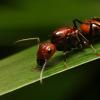
|
||
Anting →
Ant ID Requests →
ID wantedStarted by cooIboyJ , Oct 1 2024 |
|

|
2 user(s) are reading this topic
0 members, 2 guests, 0 anonymous users





